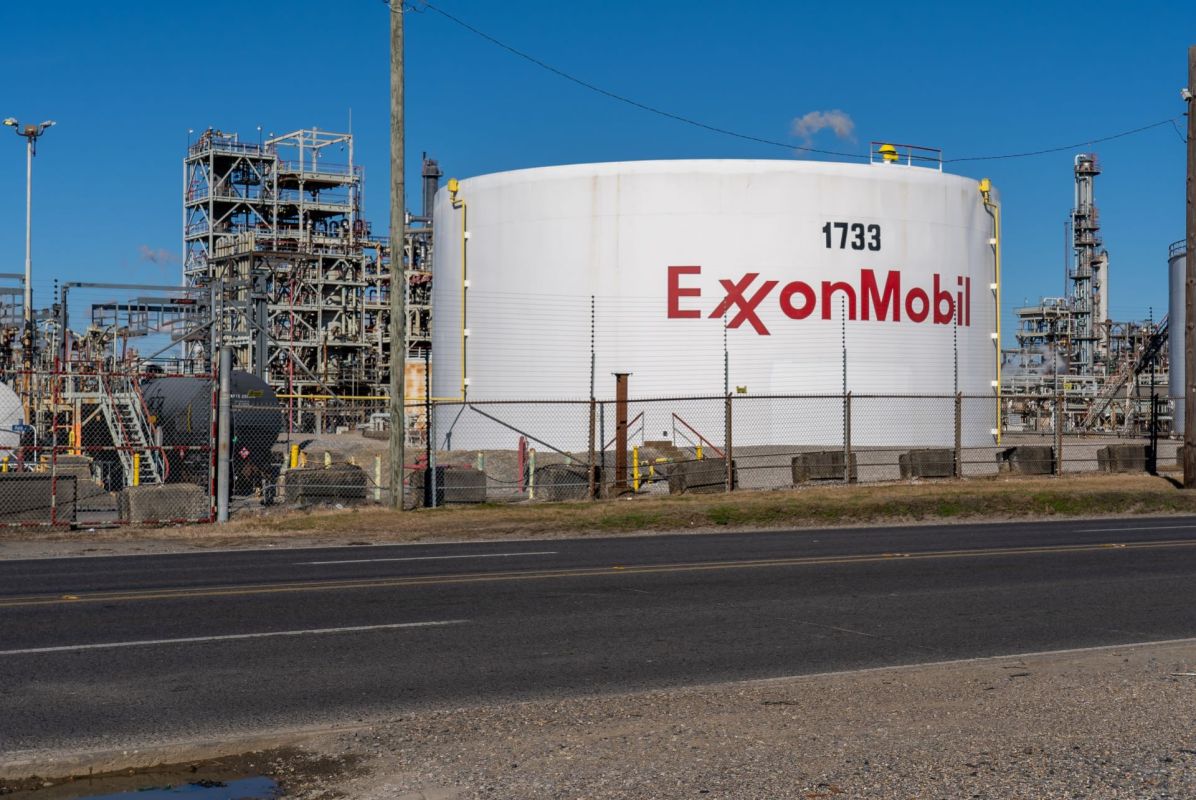The infrastructure around plastic recycling in the United States is incredibly flawed — a recent Greenpeace report found that only 5% of the plastic discarded in the U.S. is recycled, calling the entire enterprise a "failed concept."
So, while it may sound like welcome news that one of North America's largest "advanced recycling facilities" is being built in Texas, the reality is more complicated than it sounds.
ExxonMobil, one of the biggest oil and gas companies in the world, is building the new recycling plant as an addition to its petrochemical refinery in Baytown, Texas. The plant will be able to break down about 40,000 tons of plastic each year and make it into new products.
However, experts warn that the process ExxonMobil is using to recycle is actually even worse for the planet than making brand-new plastic.
Mechanical recycling is when different types of plastic are shredded and melted down to make new products. Through the process, the chemical makeup does not change. But this process is not what ExxonMobil does at its plants, however — instead, it uses a process called pyrolysis.
Pyrolysis comes with several serious environmentally damaging side effects, according to Taylor Uekert, a scientist at the National Renewable Energy Laboratory. For one, it uses up to seven times as much energy to recycle a kilogram of plastic as it would take to make the same amount of new plastic, and that energy typically comes from burning dirty energy sources like coal and gas. And it uses up a lot of water, and it generates hazardous waste materials.
Overall, Uekert said, the environmental impact of pyrolysis is 10 to 100 times greater than virgin plastic production.
So, why would ExxonMobil go into all this trouble to build a recycling plant that is up to 100 times worse for the planet than simply not recycling at all? Experts say the answer is greenwashing.
This plant "is a way for the industry to continue to expand its plastic production and assuage people's concerns about plastic waste," Veena Singla, a senior scientist at the Natural Resources Defense Council, told the Guardian. "They're trying to put a pretty bow on it."
Join our free newsletter for cool news and actionable info that makes it easy to help yourself while helping the planet.
TCD Picks » Quince Spotlight














